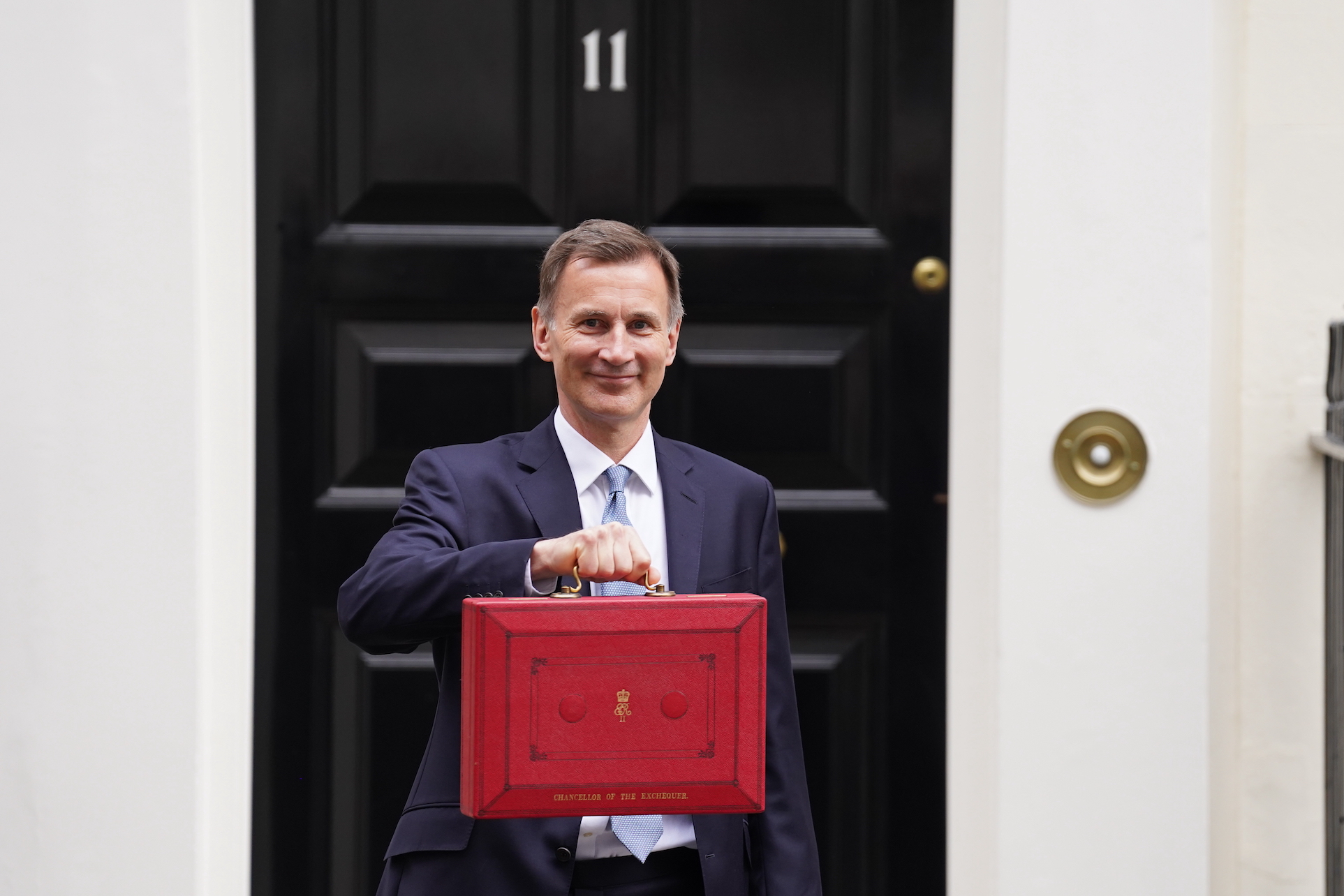Jeremy Hunt has been warned by a leading think tank that the economic case for tax cuts is “weak” ahead of the spring budget next week.
The chancellor has repeatedly hinted that he would like to lower taxes in the upcoming budget on Wednesday 6 March.
But the Institute for Fiscal Studies (IFS) has insisted Hunt should not announce tax cuts in next week’s budget if he cannot explain how he will fund them.
The IFS report said any tax cuts “should wait” until the chancellor was able to do a detailed spending review.


It added: “The economic case for tax cuts is weak. The public finances remain in a poor position.”
The report, funded by the Economic and Social Research Council, said during the autumn statement last November Hunt “ignored the impacts of higher inflation on public service budgets and instead used additional tax revenues to fund eye-catching tax cuts.”
In the autumn statement, the chancellor committed to an increase in Whitehall spending of about 1 per cent above inflation.
Hunt is reported to be considering a reduction in the overall increase in spending, bringing it down to 0.75 per cent or even 0.5 per cent.
The IFS has calculated that Hunt would need to find £35 billion of cuts in public services if he plans to use a Whitehall spending freeze to boost the government’s pre-election tax war chest.
“We don’t think we should be implementing certain tax cuts now, essentially that are paid for by uncertain spending cuts that might never be delivered”, IFS deputy director Carl Emmerson told the BBC.
The director of the IFS, Paul Johnson, said Hunt would need to explain how council services could survive further cuts. “We also have huge backlogs in the justice system, universities that are genuinely struggling after 10 years of frozen budgets, and a prison system that is full”, he said.
Martin Mikloš, an economist at the IFS and one of the report’s authors, said: “In November’s autumn statement, the chancellor ignored the impacts of higher inflation on public service budgets and instead used additional tax revenues to fund eye-catching tax cuts.
“At next week’s budget, he might be tempted to try a similar trick, this time banking the higher revenues that come from a larger population while ignoring the additional pressures that a larger population will place on the NHS, local government and other services.
“He might even be tempted to cut back provisional spending plans for the next parliament further to create additional space for tax cuts. The chancellor should resist this temptation. Until the government is willing to provide more detail on its spending plans in a spending review, it should refrain from providing detail on tax cuts.”
Pranesh Narayanan, a research fellow at the Institute for Public Policy Research (IPPR) has said the figures underscore the need for public investment, rather than “irresponsible tax cuts”.
He added: “This time last year, the Prime Minister pledged to get the economy growing but today’s data, showing a mild technical recession, shows a stark lack of progress.”
“Chronic underinvestment in hospitals, schools, net zero and infrastructure has created a crumbling public realm and a broken economy.
“This should be a wake-up call that spurs the government to prioritise public investment rather than irresponsible tax cuts. Let’s fix our problems now rather than storing them up for later.”
Politics.co.uk is the UK’s leading digital-only political website, providing comprehensive coverage of UK politics. Subscribe to our daily newsletter here.












